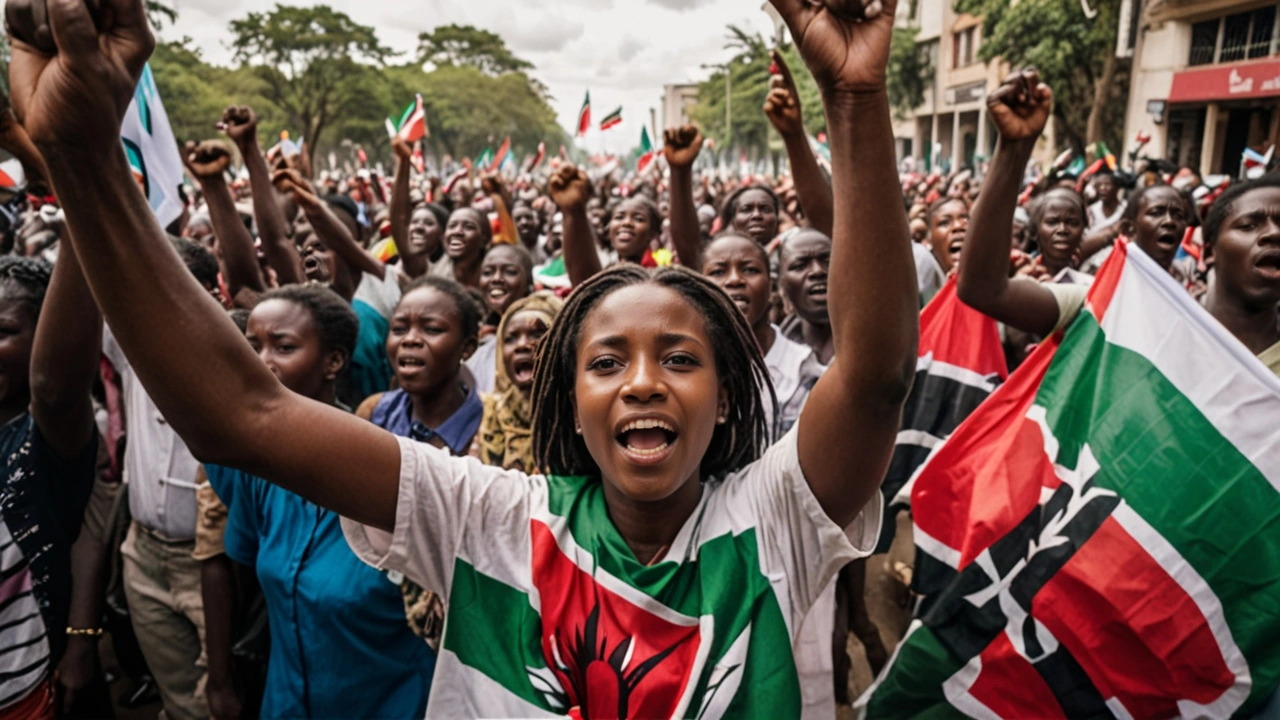Kenya's Tax Turmoil: A Battle Between Government and People
Explore the escalating tensions in Kenya as President William Ruto's administration plans to reintroduce controversial taxes, sparking public protests and political upheaval. Discover the latest developments in Kenya's tax turmoil as President Ruto's controversial tax plans return, fueling public protests and political instability. Learn about the Eco Levy, Finance Bill 2024, and the government's response to citizen activism.

Tensions in Kenya are escalating as the government considers reinstating some controversial taxes. The William Ruto administration plans to bring back about 49 tax measures that were previously scrapped, including the Eco Levy, which will increase the prices of electronic items, diapers, and other goods, though sanitary pads will be excluded this time.
Kenya's Tax Plans Erupt Into Protests

In recent months, the Kenyan government has been under scrutiny as it tried to introduce new taxes aimed at generating $1.2 billion in revenue. These taxes, part of the Finance Bill 2024, sparked widespread protests. Thousands of Kenyans took to the streets in mid-June, voicing their discontent with the government's plans to impose taxes on essentials like bread and sanitary products. This public outcry wasn't just about economics; it was about the values and priorities of their leaders.
William Ruto's Tax Odyssey
President William Ruto, who took office in September 2022, faced fierce criticism over his tax proposals. His opponents compared him to a Biblical tax collector, highlighting the public's discontent. The protests, led primarily by young Kenyans, reflected a larger dissatisfaction with the leadership's economic policies. A significant protest on June 25 saw demonstrators storm Parliament in Nairobi, a clear signal of their frustration.
Government's Response to Public Outcry
In response, President Ruto took a dramatic step by retracting the Finance Bill 2024, aiming to calm the unrest. However, this didn't completely quell the public's anger. Some citizens continued to demand Ruto's resignation, chanting "Ruto must go" through the streets, showcasing a persistent divide between the government and its people.

Creating a Unity Government
To stabilize the political landscape, Ruto dismissed his entire cabinet and formed a new "Unity Government." By including members of the main opposition party, he hoped to create a broad-based government that could push forward the necessary reforms. Ironically, the new treasury secretary, a former opposition member, started advocating for the very tax hikes they once opposed.
The Return of Controversial Taxes
Despite the previous withdrawal, the Kenyan government plans to reintroduce taxes with some modifications. Among these is the controversial Eco Levy, a 10% tax on goods that harm the environment, affecting both imports and local products like plastic. The Eco Levy's opponents argue that it unfairly targets essential items like sanitary pads and diapers, though the government has promised exemptions for some.
The Uncertain Future of Kenyan Protests
As the Unity Government works to pass the updated tax plan by the end of September, many question whether the protests achieved anything substantial. President Ruto appears to have maneuvered his way back to implementing his tax agenda, albeit with some changes. But with the memory of protests still fresh, one wonders if the Kenyan people will accept these measures quietly or rise again in defiance.
Conclusion
Kenya's taxation saga is a vivid example of the interplay between government policy and citizen activism. As the nation struggles to balance economic needs with public sentiment, the story of Kenya's tax turmoil underscores the power of collective action and the challenges of governance. It remains to be seen how the Kenyan people will respond in the coming days and what lessons can be drawn from this ongoing saga.
What's Your Reaction?
















































































































